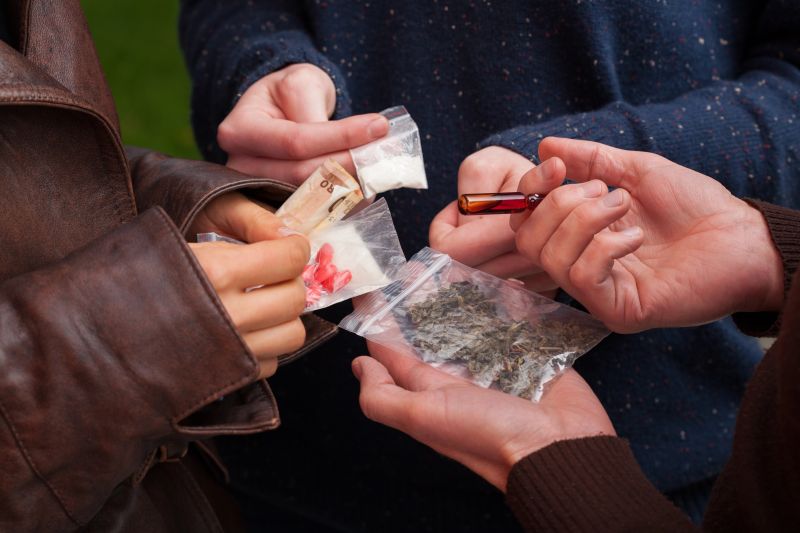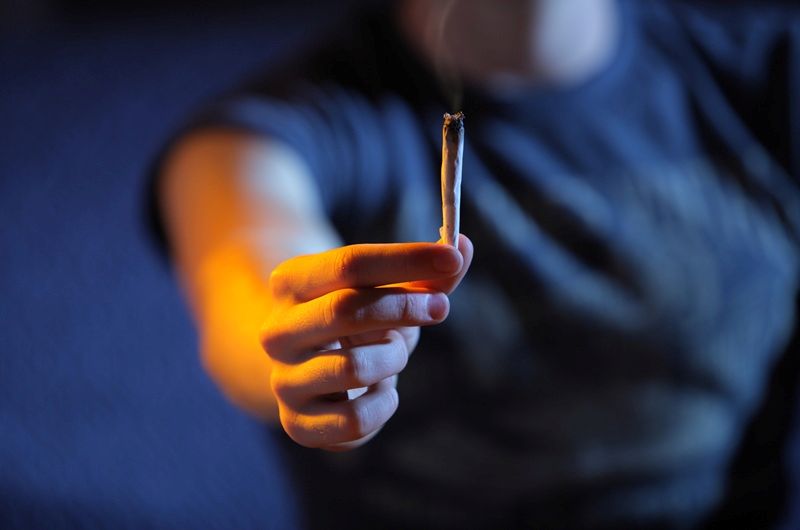Getting caught with illegal substances in Fairfax County can turn your life upside down. Virginia law takes drug possession seriously, and a conviction can lead to hefty fines, jail time, and a lasting criminal record. Understanding your rights, potential penalties, and defense options is key to protecting your future.
Drug charges come with legal and personal consequences that can affect employment, housing, and reputation. In this article, discover how Virginia classifies controlled substances, the penalties for possession, and the factors influencing sentencing. Learn about common defense strategies and how a skilled lawyer helps build a strong case on your behalf.
What Are Virginia’s Drug Classifications?
Drugs are not treated equally under Virginia law. Some carry harsher penalties because they have a high potential for abuse and no accepted medical use. Others are considered less dangerous but are still controlled substances. Virginia classifies controlled substances into six categories, known as schedules, which include:
- Schedule I: Substances with a high potential for abuse and no accepted medical use, such as heroin and LSD.
- Schedule II: Drugs with a high potential for abuse but with some accepted medical uses, including cocaine, methamphetamine, and methadone.
- Schedule III: These are substances with a lower potential for abuse than Schedules I and II, with accepted medical uses. Examples include anabolic steroids and codeine.
- Schedule IV: Drugs with a relatively low potential for abuse and accepted medical uses, such as diazepam and alprazolam.
- Schedule V: Those with a lower potential for abuse than Schedule IV and accepted medical uses, including specific cough preparations containing codeine.
- Schedule VI: This category includes substances not classified in Schedules I-V but considered controlled, such as prescription medications and inhalants.
Understanding how Virginia classifies drugs is the first step in knowing what penalties you might face. The law imposes harsher consequences for substances with higher risks. Even lower schedules still come with fines and jail time. Find out what happens if police catch you with drugs in Fairfax County.
What Happens If Police Catch You With Illegal Substances?
Penalties for possession in Fairfax County depend on the type of drug. Schedule I and II substances, like heroin, LSD, and cocaine, carry the most severe consequences. A conviction is a Class 5 felony, which can result in up to 10 years in prison and a maximum of $2,500 fine. Even a first offense can leave you with a permanent criminal record.
Schedule III and IV come with lighter penalties but still have serious consequences. Possession of a Schedule III drug is a Class 1 misdemeanor that can lead to up to 12 months in jail and a maximum fine of $2,500. Schedule IV substances fall under a Class 2, bringing up to six months in prison and a fine of up to $1,000.
Schedule V and VI substances have the lowest penalties but still result in legal trouble. Schedule V drugs, like certain cough syrups, lead to a Class 3 misdemeanor with a maximum of $500 as a fine. Schedule VI, including some inhalants, falls under a Class 4 misdemeanor and carries a maximum fine of $250.
Understanding these penalties is the first step in protecting yourself from the consequences of a conviction. However, not every charge leads to a guilty verdict there are ways to challenge the case against you.
How Can You Fight A Drug Possession Charge?
A drug possession charge can make it feel like everything is working against you, but that’s not always true. Prosecutors must prove every essential element beyond a reasonable doubt, and there are many ways to challenge their case. Knowing your options is the first step toward fighting back.
Unlawful Search & Seizure
Police must follow strict procedures when searching a person, vehicle, or home. The court may throw out the evidence if officers searched without a warrant or probable cause. Illegally obtained evidence weakens the case against you. If officers violated your rights, your attorney can push to get the charges dropped.
Lack Of Knowledge
Prosecutors must prove you knew about the drugs and had control over them. If someone left illegal substances in your car or home without your knowledge, you can argue that you had no involvement. This defense works well in cases where multiple people had access to the area where police found the drugs.
Valid Prescription
Prescription medications like Xanax, Adderall, and painkillers are legal when obtained through a doctor. If police arrested you for possessing a controlled substance but you had a valid prescription, you can use that as a defense. The medication must be in its original prescription bottle with your name on it.
Crime Lab Analysis Issues
An officer’s claim that a substance is illegal doesn’t make it accurate. Prosecutors must send the drugs to a crime lab for official testing. If the lab results don’t confirm the substance’s illegality, the court may drop the charges. Additionally, lost evidence or problems with the chain of custody can raise doubts about the case and provide a defense.
Entrapment
Law enforcement cannot pressure or trick someone into committing a crime they wouldn’t have otherwise committed. If an undercover officer coerced or encouraged you into possessing drugs, you can argue entrapment. Your attorney must prove that the police used unfair tactics to push you into breaking the law.
Fighting a drug possession charge starts with understanding your rights and the defenses available. The right legal strategy can distinguish between a conviction and a reduced or dismissed charge. Every case is different, and the details matter. If you have questions about what to expect, it helps to know what others in your situation often ask.
What Do People Ask About Drug Possession Cases?
Being accused of drug possession creates a lot of uncertainty. Many people don’t know what steps to take, what penalties they might face, or how a lawyer can help. The correct information makes a stressful situation easier to handle. Below are some common questions and answers to help you prepare for what’s ahead.
What Should You Do If Police Arrest You For Drug Possession?
Remain calm and avoid saying anything that could hurt your case. Prosecutors can use your words against you, so don’t answer questions without a lawyer present. Ask for legal counsel immediately and refuse any searches without a warrant. Taking control of the situation helps protect your rights.
Can A First-Time Offender Avoid Jail Time?
Many first-time offenders have options to avoid time behind bars. Courts sometimes offer probation, diversion programs, or treatment instead of jail. Judges look at the type of drug, the amount, and prior criminal history before deciding on sentencing. A strong legal strategy improves your chances of receiving a lighter penalty.
How Can A Lawyer Assist With A Drug Possession Charge?
A lawyer examines the details of your case, challenges weak evidence, and fights for a promising result. They negotiate for reduced charges, push for case dismissals, and explore alternative sentencing. Without legal guidance, you could miss chances to protect your future. The right defense strategy can make all the difference.
Every drug possession case has different challenges; the right approach depends on the details. Knowing your legal options can help you make better decisions about your next steps. The proper guidance can significantly affect how your case unfolds.
How Fairfax County Criminal Attorneys Fight Drug Charges?
A drug possession charge can bring stress, fear, and uncertainty about your future. You might worry about jail time, a permanent record, or how this could affect your job and family. Fairfax County Criminal Attorneys knows how difficult this feels, and we’re here to help. Our team has defended people in your position and knows how to fight for a favorable outcome.
We look at every detail of your case to find ways to challenge the charges. If the police searched you without cause, we push to have that evidence thrown out. If the prosecution can’t prove you knowingly had drugs, we argue for a dismissal. Even when the evidence seems stacked against you, there may be ways to weaken the case.
If a dismissal isn’t possible, we work to reduce the penalties you face. First-time offenders may qualify for probation or drug treatment instead of jail. In some cases, negotiating for a lesser charge can help you avoid long-term consequences. No matter the situation, we focus on protecting your future.
You don’t have to go through this alone. The proper defense can make all the difference, and we’re ready to stand by your side. If you need legal guidance, contact us to see how we can help.
Drug possession charges in Fairfax County can lead to fines, probation, or jail time. The penalties depend on factors such as the type of drug, the amount, and prior offenses. A strong defense can challenge illegal searches, weak evidence, or lack of knowledge. Understanding these elements can help in building a solid legal strategy.
The right legal approach can reduce charges or lead to alternative sentencing. First-time offenders may qualify for diversion, while others could benefit from plea deals. Every case needs a defense tailored to the details. Fairfax County Criminal Attorneys provides legal support to fight these charges and protect future opportunities.






